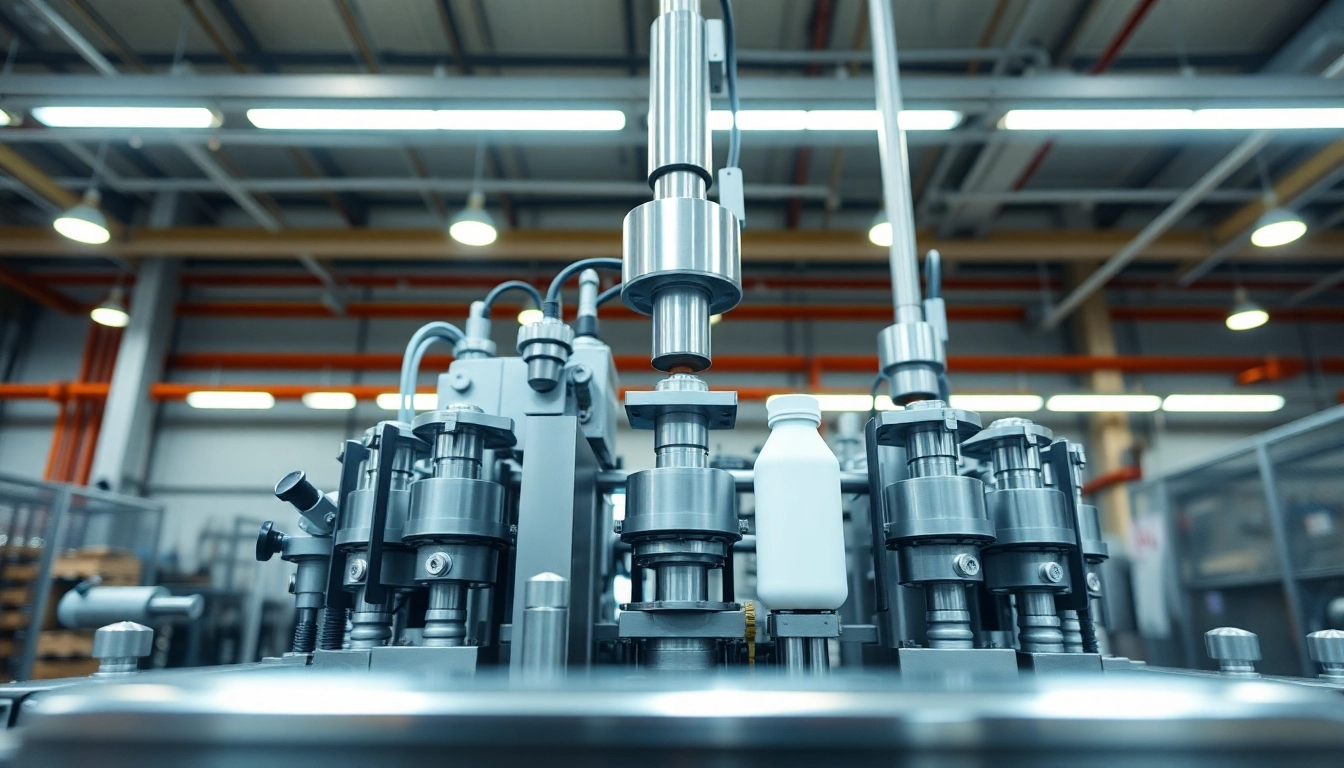Introduction to Filling Machines
In an increasingly automated and fast-paced world, manufacturing processes continue to evolve, and one crucial piece of equipment that has become a vital cog in the production wheel is the filling machine. As industries push for efficiency and precision, understanding filling machines and their specific applications becomes indispensable. A Filling Machine Supplier can provide critical insights into automating production lines, ensuring consistency in output, and meeting regulatory compliance. Let’s delve deeper into the world of filling machines, exploring their types, benefits, and the crucial aspects to consider when selecting a supplier.
What is a Filling Machine?
A filling machine is a specialized piece of equipment used in various industries to dispense a specific quantity of product into containers, whether it be bottles, cans, pouches, or any other type of package. The primary objective is to automate the filling process to boost efficiency and maintain standardization.
Filling machines can be designed for different types of products: liquids, powders, granules, or pastes. They may involve various technologies such as gravitational filling, volumetric filling, or piston filling. The operation of these machines can be manual, semi-automatic, or fully automatic, depending on the complexity of the production line.
Types of Filling Machines Available
1. Liquid Filling Machines
These machines are designed specifically for filling liquid products ranging from water to thick syrups. They can be further classified into:
- Volumetric Filling Machines: Measure a precise volume of liquid and fill accordingly. Commonly used in beverage and pharmaceutical industries.
- Piston Filling Machines: Utilize a piston to draw a specific amount of liquid into a chamber before discharging it into the container. Ideal for thick liquids or gels.
- Gravity Filling Machines: Rely on gravity to control the fill level. Typically best suited for free-flowing liquids.
2. Powder Filling Machines
Used for filling powders into containers, these machines can handle various textures and densities. They can be:
- Auger Filling Machines: Utilize a rotating auger to dispense powder accurately.
- Vacuum Filling Machines: Use vacuum technology to draw powder into containers, minimizing spills and waste.
3. Granule Filling Machines
Designed to fill granulated products, these machines often use a combination of weight and volume to ensure precision. They are widely used in food and chemical industries.
4. Paste Filling Machines
For products that are thick or viscous, paste filling machines are employed. These machines often involve pistons or diaphragm systems to ensure accurate filling.
Benefits of Using Filling Machines
1. Increased Efficiency
One of the primary advantages of filling machines is their ability to boost production rates dramatically. Automated systems can fill thousands of containers in a fraction of the time it takes to do so manually.
2. Consistent Quality
By standardizing the filling process, filling machines ensure that every container is filled to the same level with minimal variance. This consistency is particularly crucial in industries such as pharmaceuticals, where precise dosages are legally mandated.
3. Labor Reduction
Automating the filling process reduces the need for manual labor, cutting down on operational costs and minimizing human error. This can free up staff to focus on other areas of production that require human oversight.
4. Flexibility
Modern filling machines can be adjusted to accommodate various container sizes and filling volumes, making them adaptable to different production requirements.
5. Improved Safety and Compliance
Filling machines can help manufacturers maintain safety standards by reducing the risk of spills and accidents that often accompany manual filling processes. Compliance with health regulations is also enhanced through automated sanitation and quality control measures.
Choosing the Right Filling Machine Supplier
Key Factors to Consider
Selecting a filling machine supplier is as significant as the equipment itself. A few key factors you should consider include:
- Experience: Look for suppliers with a proven track record in the industry, as they will likely have more refined products and services.
- Product Range: Ensure the supplier offers a diverse range of machines that cater to your specific needs.
- Technical Support: Choose a supplier that provides robust customer service and technical support for installation and maintenance.
- Price and Financing Options: Assess pricing structures and inquire about financing options that align with your budget.
Questions to Ask Your Supplier
When engaging with a potential supplier, ask these essential questions to ensure they meet your requirements:
- What types of filling machines do you specialize in?
- Can you provide references or case studies from previous clients?
- What maintenance services do you offer after purchase?
- How customizable are your machines?
- What warranties and return policies are in place?
Evaluating Supplier Reputation and Experience
Conduct thorough research on potential suppliers. Key strategies include:
- Reading customer reviews and testimonials online.
- Inquiring within industry networks for recommendations.
- Looking for certifications or accreditations that indicate quality standards.
Industries That Benefit from Filling Machines
Food and Beverage Sector
The food and beverage industry was among the pioneers in adopting filling machines to increase production efficiency. From liquid to solid products, sector areas include:
- Beverage bottling (juices, water, and soda)
- Packaged foods (sauces, spreads, and snacks)
- Dairy products (milk and yogurt)
Pharmaceutical Applications
Precision and compliance are critical in the pharmaceutical sector. Filling machines designed for this industry ensure accurate dosages in liquid medicines. Moreover, some machines incorporate sterilization processes to maintain product integrity.
Cosmetics and Chemical Industries
Filling machines are also integral in cosmetics and chemical industries, where products often vary in viscosity and packaging sizes. Optimal filling equipment ensures consistent quality and efficient operation across a myriad of substances.
Installation and Maintenance of Filling Machines
Installation Process Explained
Once you acquire your filling machine, the installation process typically involves a few key steps:
- Site Assessment: Evaluate the location for precise dimensional measurements and requirements.
- Installation of Equipment: Set up the filling machine according to the manufacturer’s specifications.
- Integration with Existing Systems: Ensure it works seamlessly with current production lines.
- Testing: Conduct thorough testing on the machine to ensure proper functionality.
Routine Maintenance Tips
Routine maintenance is crucial for the longevity of filling machines. Here are some best practices:
- Regularly clean the machine to prevent contamination and ensure sanitary operations.
- Calibrate and perform quality checks on machinery to maintain accuracy.
- Inspect and replace worn-out parts promptly to avoid production downtime.
Common Issues and Solutions
Some common issues that may arise include:
- Inconsistent Filling: This can be resolved through recalibration or inspecting for mechanical issues.
- Container Jamming: Ensure that the correct type of container is being used and that none are damaged.
- Leaks: Investigate and replace any damaged seals or gaskets.
Future Trends in Filling Machine Technology
Automation and Smart Technology
The future of filling machines is heading toward greater levels of automation and integration with smart technology. Advancements in IoT (Internet of Things) allow for real-time data processing, helping manufacturers track production metrics and device performance remotely.
Sustainability in Filling Operations
As industries become increasingly environmentally conscious, there is a push towards sustainable filling operations, incorporating energy-efficient machines and recyclable packaging solutions to minimize waste.
Predictions for Industry Growth
According to industry forecasts, the demand for filling machines will likely grow significantly in the coming years, largely driven by the expanding food and beverage sector, as well as rising healthcare needs worldwide. The integration of more advanced technology will further fuel this growth, promoting efficiency and drive down operational costs.








